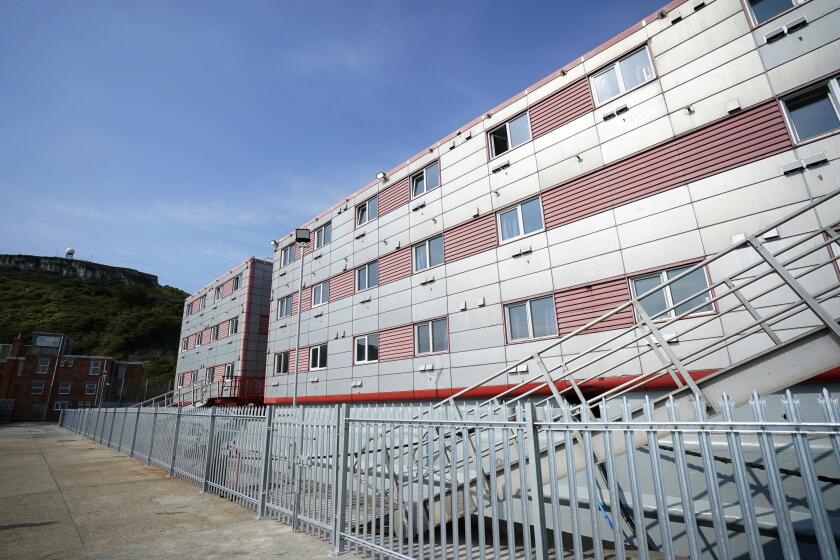State Is Facing Funding Loss for Immigrants
Deficit-ridden California stands to lose hundreds of millions of dollars in anticipated federal funds for newly legalized immigrants and refugees next year under steep budget reductions proposed by a key House panel.
Gov. Pete Wilson and members of the state’s congressional delegation are scrambling to restore the federal aid, which was cut far more deeply than expected last week by the House Appropriations Subcommittee on Labor, Health and Human Services.
If those efforts fail, the costs would be shifted to the state, which already faces a $14.3-billion budget deficit.
Funds for the State Legalization Impact Assistance Grant (SLIAG) program--which provides reimbursement to state and local governments formedical, welfare and educational costs for immigrants legalized under the 1986 amnesty law--were eliminated in the $204-billion Labor, Health and Human Services and Education bill. The appropriations panel also proposed during a closed-door session to defer the $1.12 billion available for the SLIAG program until 1993.
“This is devasting to California,” Rep. Howard L. Berman (D-Panorama City), who helped negotiate the 1986 immigration law, said Friday.
The appropriations panel’s action, if it stands, would postpone the fight over the remaining funds until next year. Amid increasingly tight allocations for social service programs, SLIAG has become an annual budgetary battleground.
California--which is home to 1.3 million of the new immigrants, 61% of the nation’s total--is entitled to $683 million of the SLIAG funds. The state is expected to incur $291 million in new costs in the program in 1992. It estimates it will have $82 million available as a surplus from this year--leaving $209 that it would have to pick up without the federal reimbursement.
“Any funding reduction for the SLIAG program will dramatically injure our attempts to fully integrate newly legalized persons into their communities and to provide essential services,” Wilson said in a letter to the state’s congressional delegation and to Rep. William H. Natcher (D-Ky.), chairman of the appropriations subcommittee.
The deletion of any 1992 funding for SLIAG left angry California lawmakers privately directing some of the blame at veteran Rep. Edward R. Roybal (D-Los Angeles), who, they contend, did not aggressively push the measure as a member of the appropriations subcommittee. Roybal, whose East Los Angeles district includes many newly legalized immigrants, could not be reached.
The major reductions proposed in the refugee resettlement programs were even more unexpected, California officials said. Last year, $441 million was allocated to pay for rent, food, health benefits and other services for 100,000 new refugees. The appropriations subcommittee included $298 million to help resettle an estimated 140,000 refugees in the fiscal year beginning Oct. 1. California, which has 58% of the nation’s refugees, again would take the brunt of the cuts.
California lawmakers will attempt to get funds for both programs added to the funding bill when it comes before the full Appropriations Committee next week.
More to Read
Get the L.A. Times Politics newsletter
Deeply reported insights into legislation, politics and policy from Sacramento, Washington and beyond. In your inbox three times per week.
You may occasionally receive promotional content from the Los Angeles Times.





